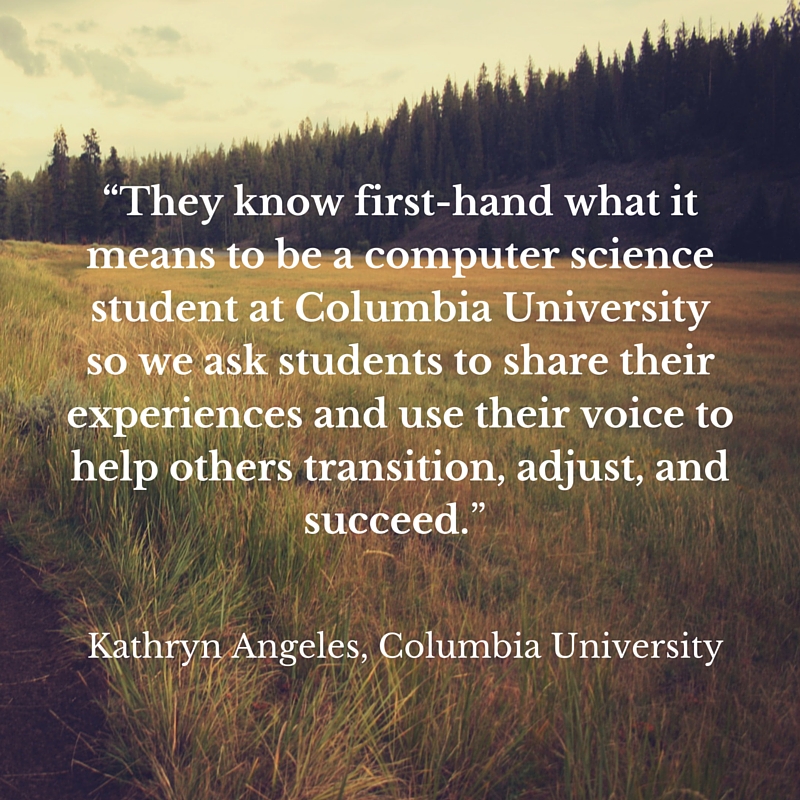Commission for Academic Support in Higher Education
Friday, 17 June 2016 - 2:05pm
Commencement is over. A majority of students have left for summer break, leaving behind a quiet and mostly empty campus. After a few weeks of peace and quiet, I am ready for the students to come back and breathe life back into campus. For the Student Services team in the Computer Science Department at Columbia University, students are our biggest resource and a major part of our academic support initiatives. They know first-hand what it means to be a computer science student at Columbia University so we ask students to share their experiences and use their voice to help others transition, adjust, and succeed. Below is how we currently involve current students in academic support.

Current Student Speakers at Orientation
During our orientation sessions for incoming master students, we always ask a few current students to participate. Last year, we involved students in a couple of ways.
- During the program session where we talk about the nitty gritty details of the program, we had a couple of current students speak for a few minutes about their experiences in the program and to offer advice and tips. We also opened the floor to questions.
- We offered a time and stress management session during the orientation week. An alum and current student were the presenters of this session. They presented tips on how to manage time and stress during the program, as well as shared their experiences.
Peer Advisors during Registration and Change of Program Period
Since our team does not take the courses offered in our department and do not have computer science backgrounds, we are often not able to answer students’ specific questions about course material and instructors. Students are often very honest when answering these types of questions so we use them as peer advisors during early registration and change of program period (the first two weeks of the semester when students can add and drop courses without financial penalties). We also find that students can best answer questions on which courses should or should not be taken together, and which courses will best address particular topics and issues.
Peer Mentorship Program through Student Organization
Last year, a student organization thought first-year and second-year students interested in computer science would benefit from the knowledge and experience CS majors in their third- and fourth-years gained throughout their time at Columbia. Student leaders from the organization approached our team to partner in developing a peer mentorship program for computer science undergraduates. The mentorship program is a student-led and student-run initiative, where students are the primary academic and social support resources for other students.
What Happens When Our Most Active Students Graduate?
Often, we see the same faces over and over again at events and as volunteers for the initiatives described above. These students are typically our most active and engaged students. However, what happens when they graduate? Our team constantly struggles with developing ways to engage students who may not be as involved. We continuously try to think of a variety of ways to engage students through new initiatives and incentives
About the Author:
Preferred Name – Kathryn Angeles
Institution – Columbia University
Title – Student Affairs Officer; ACPA CASHE Fellow 2016-2017
Bio. – Kathryn works with undergraduate and master students in the computer science department at Columbia University. She is a graduate of George Mason University (MA) and Vassar College (BA).
Contact E-Mail and/or Twitter name – ka2550@columbia.edu; @katangeles

